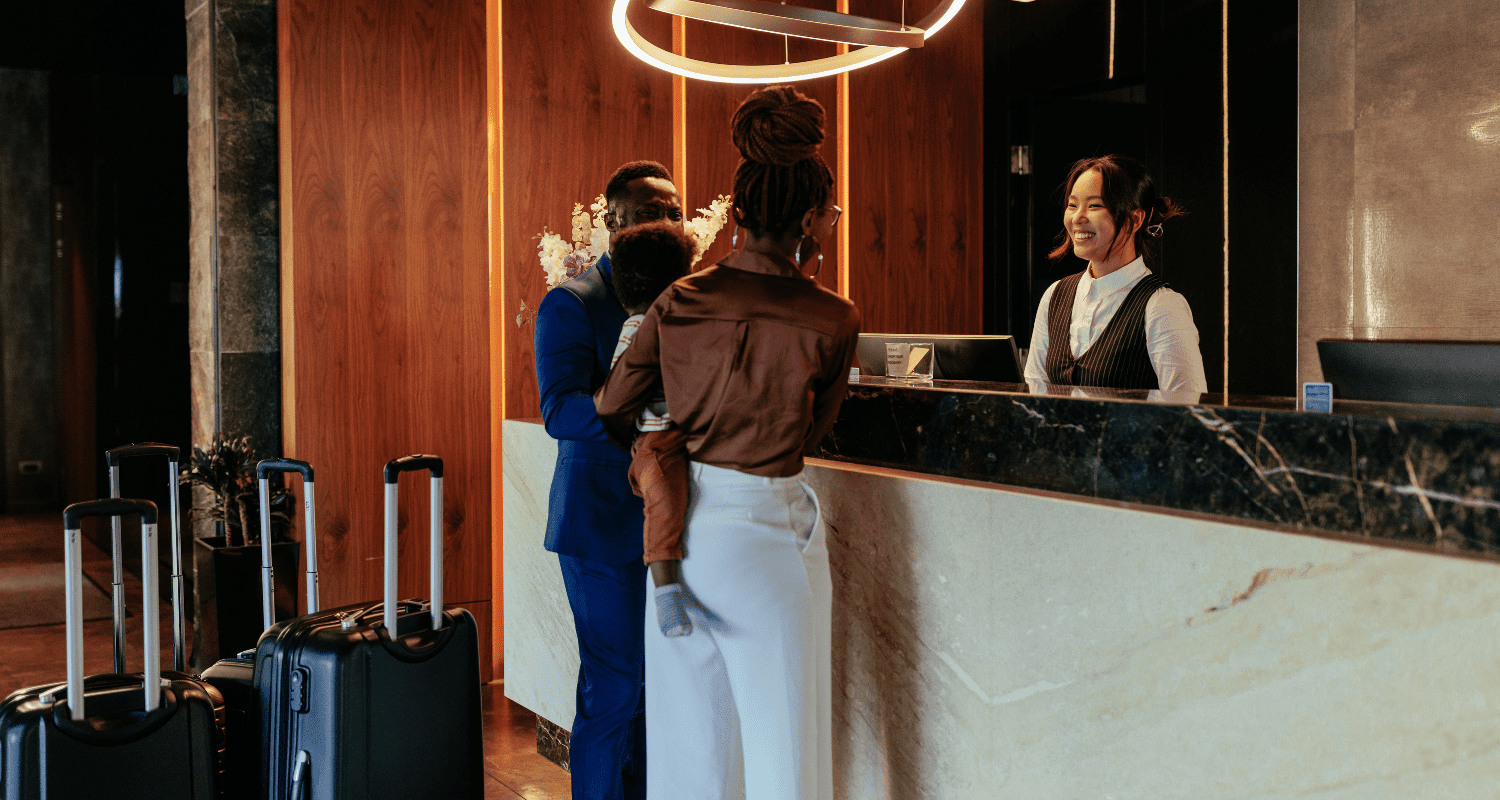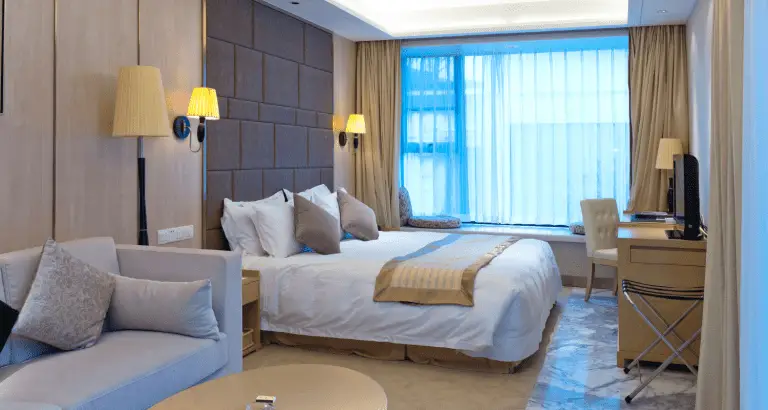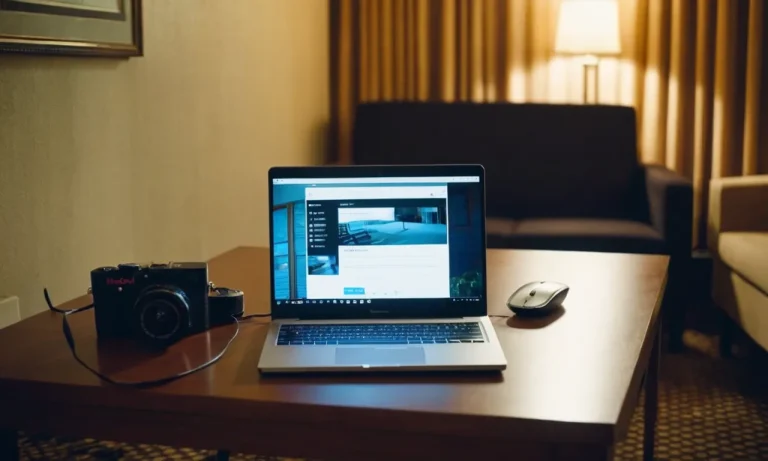Do Hotels Care if You Have an Extra Person? A Comprehensive Guide
Sneaking in an extra guest at a hotel can be tempting, especially when you’re trying to save money or accommodate a last-minute addition to your travel plans. However, this practice raises several questions and concerns for both guests and hotels alike. Is it legal? Will you get caught?
What are the potential consequences?
If you’re short on time, here’s a quick answer to your question: Most hotels do care if you have an extra person staying in the room, as it violates their policies and can lead to additional charges or even eviction.
In this comprehensive article, we’ll delve into the intricacies of hotel policies regarding extra guests, explore the reasons behind these rules, and provide insights into the potential risks and consequences of violating them.
We’ll also discuss alternative options and strategies for accommodating additional guests legally and ethically.
Understanding Hotel Policies on Extra Guests
Standard Room Occupancy Limits
Hotels have established room occupancy limits to ensure the safety and comfort of their guests. These limits typically specify the maximum number of people allowed to stay in a standard room. For example, most hotels set the occupancy limit for a standard room at two to four people, depending on the room size and the number of beds.
Exceeding these limits can be a violation of hotel policies and fire safety regulations.
It’s important to note that these occupancy limits are not just arbitrary rules set by the hotel. They are based on factors such as the room’s square footage, the number of beds, and local fire codes. Hotels must comply with these regulations to ensure that in the event of an emergency, all guests can be safely evacuated.
According to the American Hotel & Lodging Association, hotels invest heavily in fire safety measures, including sprinkler systems, fire alarms, and emergency exits, to protect their guests.
Fire Safety and Liability Concerns
When it comes to allowing extra guests in a hotel room, fire safety is a major concern. Having too many people in a room can increase the risk of injury or loss of life in the event of a fire or other emergency.
Hotels are legally responsible for the safety of their guests, and allowing overcrowding can expose them to potential liability issues.
In addition to fire safety, hotels also have to consider other risks associated with overcrowding, such as increased noise levels, wear and tear on the room, and potential disturbances to other guests. These factors can negatively impact the overall guest experience and the hotel’s reputation.
Potential Additional Charges
While some hotels may be more lenient about allowing an extra guest or two, most will charge an additional fee for each extra person beyond the standard occupancy limit. These fees can vary widely, ranging from $10 to $50 or more per night, depending on the hotel’s policies and location.
The rationale behind these additional charges is twofold. First, hotels incur additional costs for providing amenities and services to extra guests, such as towels, toiletries, and increased housekeeping demands.
Second, charging for extra guests helps to discourage overcrowding and ensure that the hotel remains compliant with occupancy regulations.
It’s worth noting that some hotels may waive these additional charges for children under a certain age (typically 12 or younger). However, it’s always best to check with the hotel in advance and disclose the exact number of guests to avoid any surprises or potential penalties.
| Hotel Category | Average Additional Fee for Extra Guest |
|---|---|
| Budget Hotels | $10 – $20 per night |
| Mid-range Hotels | $20 – $30 per night |
| Luxury Hotels | $30 – $50 or more per night |
Consequences of Sneaking in an Extra Guest
Hotels have strict policies regarding occupancy limits, and attempting to sneak in an extra guest can have serious consequences. While some travelers may think it’s a harmless prank, most hotels take this issue very seriously, and the risks can outweigh any perceived benefits. 😬
Eviction and Potential Legal Implications
The most immediate consequence of sneaking in an extra guest is the risk of eviction. Hotels reserve the right to terminate a guest’s stay if they violate their policies, and sneaking in an additional person is often grounds for immediate removal from the premises.
In some cases, this can even lead to legal implications, such as trespassing charges or fines, especially if the guest refuses to leave or becomes disruptive. According to a survey by Hotel News Resource, over 60% of hotels have evicted guests for violating occupancy rules. 🚨
Damage to Reputation and Future Bookings
Beyond the immediate consequences, sneaking in an extra guest can also damage your reputation with the hotel and potentially impact future bookings. Many hotels keep detailed records of guest behavior, and a violation of this nature may be noted in your profile.
This could lead to difficulties securing reservations at the same hotel or even within the same hotel chain in the future. Additionally, if the incident escalates or causes significant disruption, the hotel may choose to blacklist you entirely, preventing you from booking with them again. 🚫
- A study by RevFine found that 92% of travelers are influenced by online reviews when booking hotels.
- Negative experiences, such as being evicted for sneaking in guests, can lead to damaging online reviews that can impact a hotel’s reputation and future bookings.
Financial Penalties and Charges
In addition to eviction and reputational damage, sneaking in an extra guest can also result in financial penalties and charges. Many hotels have specific fees for additional guests, which can range from a nominal charge to a significant amount, depending on the hotel’s policies.
If caught, you may be required to pay these fees retroactively, potentially adding a substantial cost to your stay. 💰
Furthermore, if the extra guest causes any damage to the room or hotel property, you may be held financially responsible for those damages as well. This can include everything from stained linens to broken furniture or even excessive noise complaints from other guests.
According to a study by Hotel News Now, unruly guest behavior costs the hotel industry millions of dollars each year in damages and lost revenue. 💸
While sneaking in an extra guest may seem like a harmless way to save money, the potential consequences can be severe and long-lasting. From eviction and legal troubles to reputational damage and financial penalties, it’s simply not worth the risk.
Hotels have these policies in place for a reason, and respecting them is the best way to ensure a smooth and enjoyable stay. 😊
Alternative Options for Accommodating Additional Guests
When traveling with a larger group or family, finding suitable accommodations can be a challenge. Fortunately, there are several alternative options to explore if your hotel room isn’t big enough to accommodate everyone comfortably. Here are some popular solutions:
Upgrading to a Larger Room or Suite
One of the most straightforward options is to upgrade to a larger room or suite at the same hotel. Many hotels offer various room types, from standard rooms to multi-room suites or even villas, designed to accommodate more guests.
However, it’s essential to inquire about the hotel’s maximum occupancy policies and any additional fees that may apply for extra guests. According to a survey by TravelPulse, around 70% of hotels charge extra fees for additional guests beyond the standard occupancy.
Booking Additional Rooms
If upgrading to a larger room isn’t feasible or too costly, another option is to book additional rooms at the same hotel. This approach ensures that everyone in your group has a comfortable place to stay while still enjoying the hotel’s amenities and services.
It’s a great solution for larger families or groups traveling together. However, it’s essential to book early to ensure availability, especially during peak travel seasons.
Exploring Nearby Hotels or Vacation Rentals
If your preferred hotel can’t accommodate your entire group, consider exploring nearby hotels or vacation rentals. This option can provide more flexibility in terms of space and amenities, and it may even be more cost-effective in some cases.
Websites like Airbnb and VRBO offer a wide range of vacation rental options, from apartments to entire houses, which can comfortably accommodate larger groups. Just be sure to read the property descriptions and reviews carefully to ensure the accommodations meet your needs.
No matter which alternative you choose, it’s always a good idea to communicate openly with the hotel or property owner about your group’s size and needs. This transparency can help avoid any misunderstandings or potential issues during your stay.
With a little planning and flexibility, you can find the perfect accommodations for your entire group and ensure everyone has a comfortable and enjoyable experience. 😊
Communicating with Hotel Staff
Being Upfront and Transparent
One of the golden rules when it comes to having an extra person stay with you at a hotel is being upfront and transparent with the staff. After all, honesty is the best policy, right? 😊 By disclosing the presence of an additional guest from the get-go, you not only demonstrate respect for the hotel’s policies but also avoid any potential misunderstandings or complications down the line.
Many hotels have strict occupancy limits for their rooms, so it’s crucial to communicate your needs accurately. According to a survey by Hotel News Resource, over 80% of hotels enforce occupancy limits, with penalties or even eviction for violations.
By being transparent, you can work with the hotel to find a suitable solution, whether it’s upgrading to a larger room or paying an additional guest fee.
Negotiating for Additional Guest Fees
Let’s be real, those additional guest fees can sometimes put a dent in your travel budget. But fear not, my friends! With a little charm and negotiation skills, you might be able to strike a deal with the hotel.
💰 Many hotels are willing to be flexible, especially during off-peak seasons or if you’re a loyal customer.
One strategy is to inquire about discounts or package deals that include additional guests. You could also politely ask if the fee can be waived or reduced, highlighting your loyalty or the potential for future bookings.
According to a TripAdvisor survey, 92% of travelers are more likely to book a hotel that offers discounts or promotions. So, it never hurts to negotiate – just remember to do so respectfully and with a smile. 😊
Understanding Hotel Flexibility and Policies
While most hotels have policies in place regarding additional guests, it’s essential to understand that these policies can vary greatly from one establishment to another. Some hotels may be more lenient, while others strictly enforce their rules.
It’s always a good idea to familiarize yourself with the specific policies of the hotel you’re staying at.
For instance, Marriott Hotels generally allow a maximum of two additional guests per room, with an extra charge per person per night. On the other hand, IHG Hotels have a more flexible policy, allowing up to two children under 12 to stay for free in the same room as their parents.
It’s also worth noting that some hotels may be more accommodating during slower periods or for longer stays. Don’t be afraid to ask about their flexibility and see if they’re willing to make exceptions or offer special rates.
At the end of the day, clear communication and understanding the hotel’s policies can go a long way in ensuring a smooth and enjoyable stay for all parties involved. 👍
Tips for Avoiding Issues with Extra Guests
Planning Ahead and Booking Appropriately
When it comes to booking a hotel room, it’s crucial to plan ahead and book appropriately to avoid any issues with extra guests. Many hotels have strict policies regarding the maximum number of occupants allowed per room, and violating these rules can lead to additional charges or even eviction.
🙅♀️ To ensure a smooth stay, always disclose the accurate number of guests when making your reservation. This way, the hotel can accommodate your needs and provide the appropriate room type and amenities.
According to a study by HotelNewsResource.com, over 60% of hotels charge extra fees for additional guests beyond the stated occupancy limits. These fees can range from $10 to $50 per person per night, depending on the hotel’s policies.
To avoid these unexpected costs, it’s best to book a larger room or request a rollaway bed in advance if you plan to have extra guests. 💰
Respecting Hotel Rules and Regulations
Hotels have rules and regulations in place for a reason – to ensure the safety, comfort, and well-being of all guests. When it comes to having extra guests, it’s essential to respect these policies. Most hotels prohibit overcrowding rooms, as it can create fire hazards, excessive noise, and other disturbances.
🔥 By adhering to the hotel’s guidelines, you not only avoid potential issues but also contribute to a pleasant experience for everyone involved.
If you find yourself in a situation where you need to accommodate an extra guest unexpectedly, it’s best to approach the front desk staff politely and explain your circumstances. Many hotels are willing to work with guests and find a reasonable solution, such as offering a discounted rate for an additional room or providing a rollaway bed for a fee.
However, attempting to sneak in extra guests without the hotel’s knowledge can lead to serious consequences, including eviction or even legal action. 👮♀️
Considering Alternative Accommodation Options
If your group size exceeds the hotel’s occupancy limits or you’re seeking more affordable options, it’s worth considering alternative accommodation choices. Vacation rentals, such as Airbnb or VRBO, can be a great solution for larger groups or families.
These platforms offer a wide range of properties, from apartments to entire houses, that can comfortably accommodate extra guests without the strict occupancy restrictions of hotels. 🏡
Additionally, hostels and budget hotels may offer more flexibility when it comes to occupancy limits, although they may lack some of the amenities and services of traditional hotels. By exploring these alternatives, you can find accommodations that better suit your group’s needs and budget while avoiding potential conflicts with hotel policies.
💰
Remember, being upfront and transparent about the number of guests in your party is the best way to ensure a hassle-free and enjoyable stay. Hotels generally want to provide a positive experience for their guests, but they also have rules in place to maintain safety and order.
By following these tips, you can navigate the situation with ease and make the most of your travel experience. 🎉
Conclusion
While sneaking in an extra guest at a hotel may seem like a tempting way to save money or accommodate unexpected changes in travel plans, it’s important to understand the potential risks and consequences involved.
Hotels have policies in place for a reason, and violating them can lead to eviction, legal implications, financial penalties, and damage to your reputation.
By exploring alternative options, communicating openly with hotel staff, and respecting the rules and regulations, you can ensure a smooth and enjoyable stay while avoiding any unnecessary complications.
Remember, being upfront and transparent is always the best approach when it comes to accommodating additional guests at a hotel.






